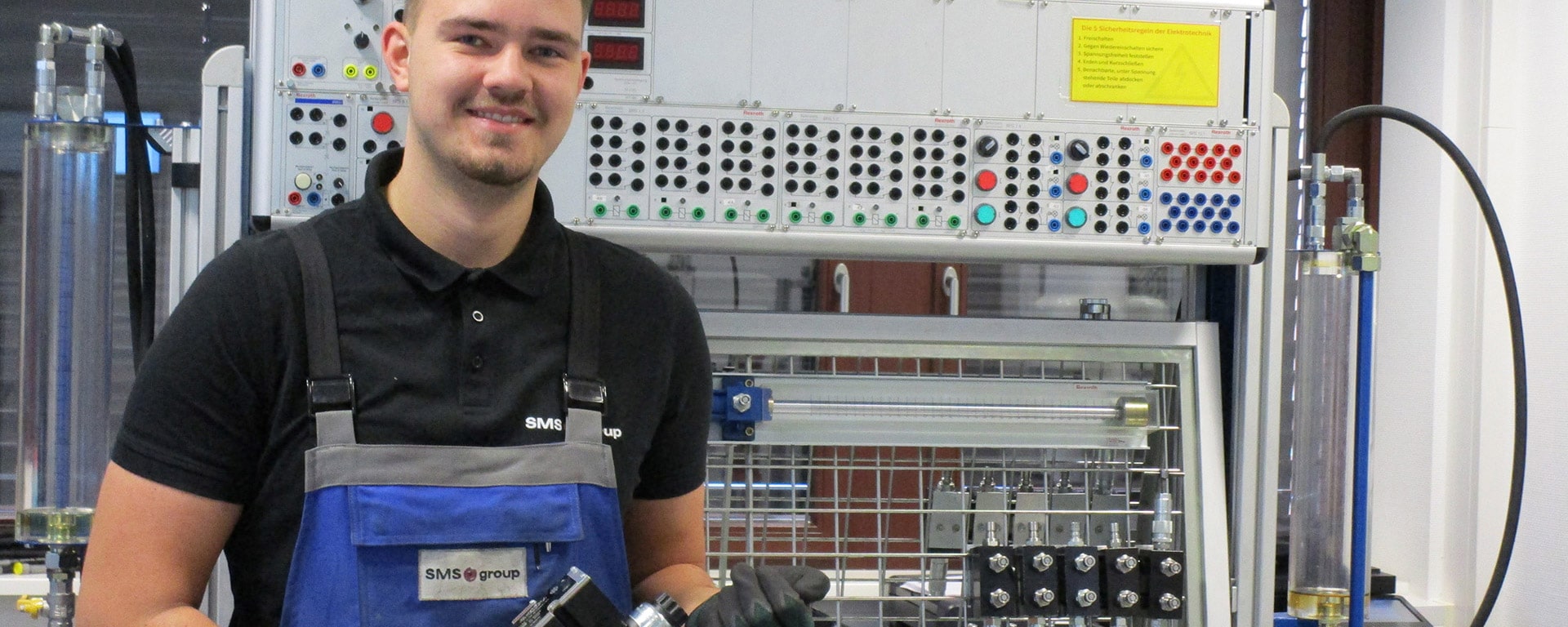What do you do as a systems mechanic?
In system engineering, various technical components are combined to form an overall system (a plant) with precisely defined tasks. As a plant mechanic, you will therefore be a true all-rounder and variety will be the focus of your day-to-day work. Systems are often unique and are used, for example, to distribute things such as oil, gases, compressed air or materials. When a new system is to be built, the first thing you do is draw up a precise plan. Then you get to work: you grind, cut and punch the components for your system. You don’t do this alone, but are supported by various machines and tools. For example, you use automatic welding robots or cutting tools to implement your construction plan precisely. As soon as everything is ready, you go to your client. There you will assemble the individual parts and put them into operation. Using your knowledge of plant mechanics, you will instruct your client on how to operate the new system. And afterwards, you will also be the contact person for any problems or questions about your system.
Where are you needed?
As a system mechanic, you can be employed in various areas. For example, in metal and system engineering companies or in the food industry. Pipelines for oil and gas extraction also fall within your professional profile. The construction of particularly energy-efficient plants is also a growing field. If you are interested in energy generation, companies that manufacture solar systems, for example, are also an option.
What should you bring with you?
During your dual training, you will learn everything you need for a career in system mechanics later on. To make learning and your apprenticeship fun, it would be good if you are interested in technical matters and have some manual skills. If, for example, you always have a clear view when assembling furniture and can put everything together quickly, then you have good prerequisites. Your training company usually wants you to have an intermediate school leaving certificate. But here too, practice is more important than theory. If you have already completed an internship, for example, this often counts more than your school performance and your chances of getting an apprenticeship are excellent.
Your apprenticeship at a glance
- 3.5 years
- Under certain conditions, such as an existing apprenticeship, a reduction of up to 2.5 years is possible
- Theory at vocational school, practice at the training company
- Wide range of training content from materials science, plant engineering and quality management to environmental protection and occupational safety.
- The first part of the final examination takes place at the end of the second year of training. The second part follows at the end of your apprenticeship.
- After your apprenticeship, you will have plenty of opportunities for further development. If you feel ready to take on management tasks, you can later consider further training to become an industrial foreman in the field of metal or a technical business administrator. A degree course, for example in mechanical engineering, is also possible.
